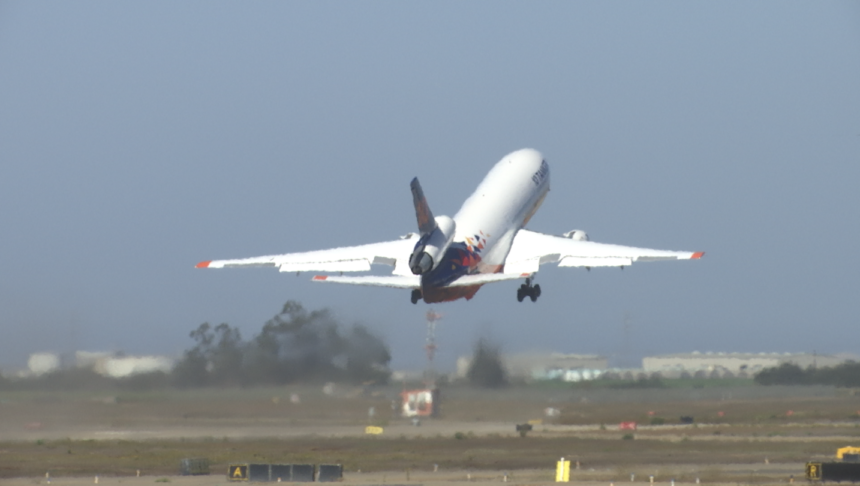Santa Maria Airport bustling nonstop with planes providing air support to Alisal Fire

SANTA MARIA, Calif. -- The Santa Maria Airport was buzzing with activity Wednesday with firefighting air tankers taking off and landing nonstop all day long.
"It's busy," said said Alex Ihle, Los Padres National Forest Air Tactical Group Supervisor. "Planes coming and going in rapid fire."
The planes are providing vital air support in the battle against the Alisal Fire that is burning in the mountains between the Gaviota Coast and the Santa Ynez Valley.
The fire has burned 15,442 acres and is currently 5% contained. Highway 101 which was closed Monday afternoon, remains closed as of Wednesday evening.
The Santa Maria Air Tanker base is located at the Santa Maria Airport and is operated by the U.S. Forest Service.
The base is the launching point and refueling station for firefighting aircraft in the Central California region, as well as parts of the Western United States.
On Wednesday morning, aircraft first departed at 8 a.m. As of Wednesday afternoon, 10 planes were flying in and out of the airport, providing a show for numerous spectators that came to watch the continuous operation.
By noon, dozens of drops had already been delivered to the fire site. It marked a significant turnaround from the first two days of the firefight.
At 6 p.m., there had been 50 fight legs with the tankers dropping a combined 190,000 gallons of retardant.
"It's rewarding knowing that we can get out and make a difference," said Ihle. "We're doing our best to get them in and get them out, load them, fuel them, and get them right back to the fire."
When the fire broke out on Monday afternoon, fierce winds prevented any air support from attacking the flames from the air.
"The winds are behaving so far and visibility has been a bit of a challenge," said Ihle. "The wind hasn't been moving the smoke out over the ocean as it was yesterday, so we're taking the opportunities we're given and making the most of where we can work."
Air tanker support was grounded until about 2:30 p.m. Tuesday afternoon when weather conditions improved enough to allow fixed-wing planes to begin dropping retardant.
Helicopters, which fly at lower altitudes than tankers, first began water drops on Tuesday morning.
Before the fire started, there were two BAe-146 planes pre-positioned at the base.
During Wednesday's operation, eight additional aircraft arrived from other tanker bases located in Sacramento, San Bernardino, Lancaster and Paso Robles.
In addition to the BAe aircraft, there are also two DC-10 planes working the fire. The DC-10 can hold more than 10,000 gallons of retardant and is the largest tanker used by firefighters.
